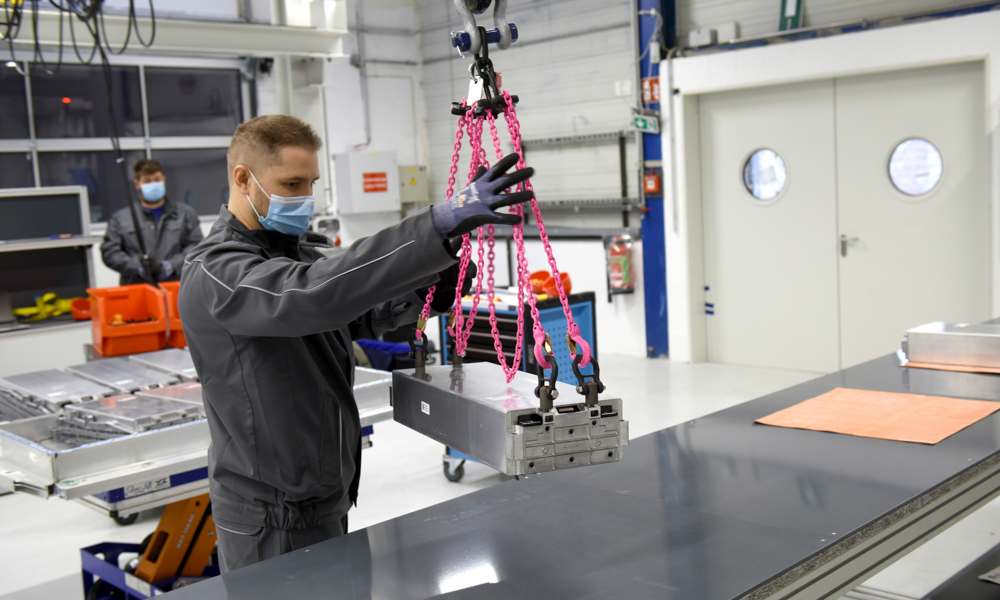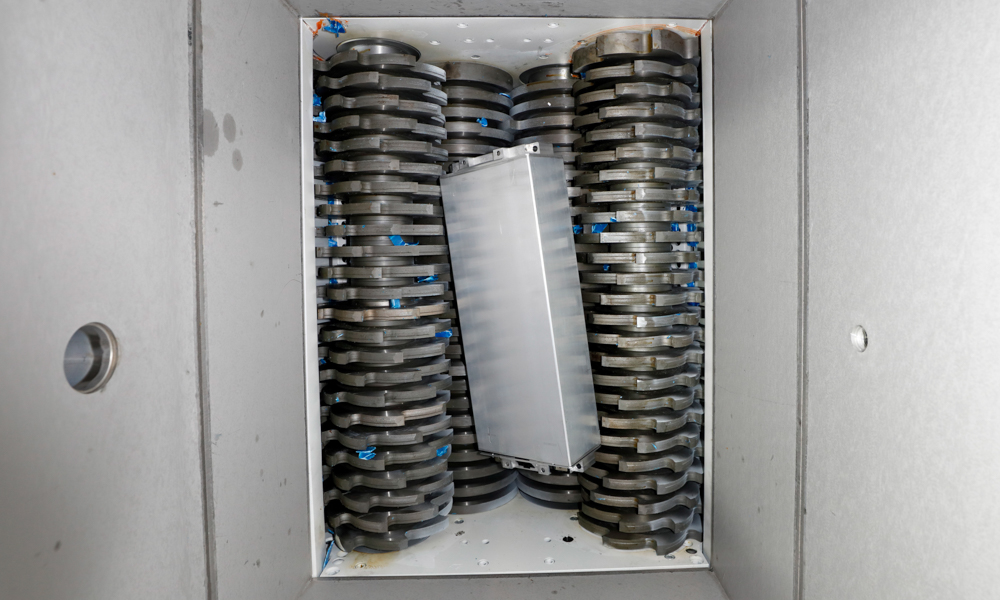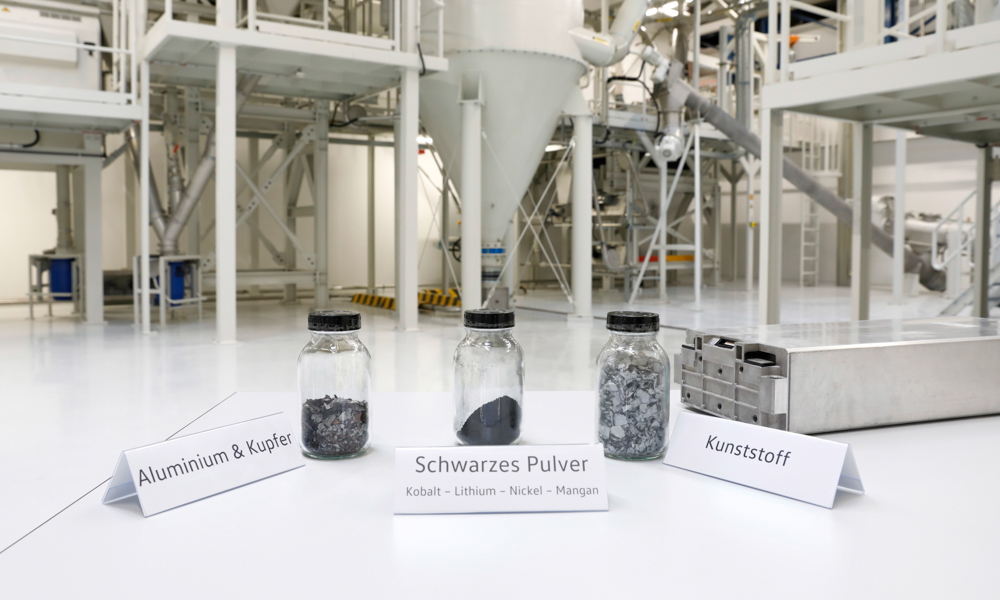
When we think about recycling, images of super-hot melting pots come to mind. And in theory, there is some truth to that as heat usually plays a major role in the process of recycling plastics or metal. And in a world where electric vehicles will only see more widespread use, the disposal of used batteries that contain precious metals will eventually become a pressing issue.
Because of this, Volkswagen has recently opened a used-battery processing plant, and is implementing an innovative way of recycling used cells. This plant is unique in that it only accepts batteries that can no longer be repurposed in their current form. Even the recycling procedure is ingenious in itself as the automaker claims that it does not require melting in a blast furnace.


The spent batteries are initially analyzed for their suitability in being reused or repurposed. The cells are then discharged and dismantled. Each component is shredded into fine granules of aluminum, copper, plastic and “black powder.” This black powder is said to contain the raw materials for making new batteries such as lithium, nickel, manganese, cobalt and graphite. These individual elements are then separated using hydrometallurgy by outsourced personnel.
Volkswagen’s recycling facility has the capacity to process 3,600 batteries annually, which can be scaled up as required. It is said that about 1.3 tons of carbon dioxide is saved for each 62kWh battery pack made from these recycled components. The finished products will eventually find their way to public EV charging stations or Volkswagen’s own mobile charging robots.


0 Comments